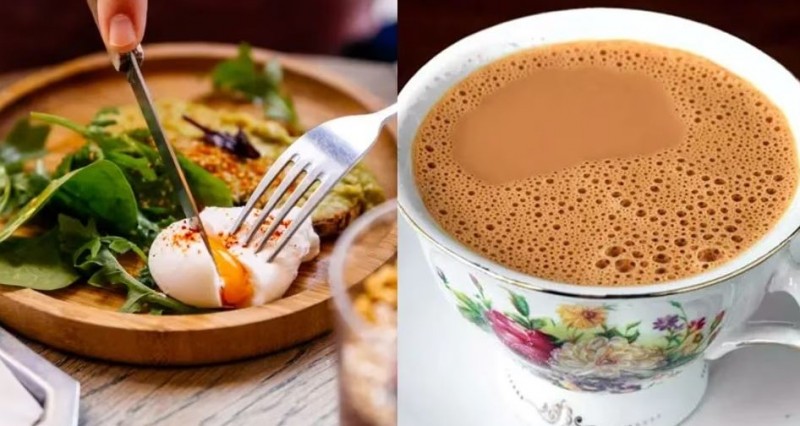
Tea is a beloved beverage enjoyed by millions around the world for its soothing qualities and diverse range of flavors. Whether it's a morning pick-me-up or an afternoon ritual, tea can provide comfort and relaxation. However, the way we combine tea with certain types of foods can have a significant impact on our digestive system. In this article, we will explore five types of foods that are best avoided when consuming tea to promote optimal digestion and overall well-being.
Dairy Products:
Dairy products like milk, cream, and cheese can hinder the digestive process when consumed alongside tea. Tea contains tannins, which are compounds that have a binding effect. When tannins interact with the proteins in dairy, they can form complexes that are difficult for the digestive system to break down. This can lead to discomfort, bloating, and even indigestion. Instead of pairing tea with milk-based products, consider opting for plant-based milk alternatives like almond, soy, or oat milk that are less likely to interact negatively with the tannins in tea.
Spicy Foods:
While some people enjoy the contrast of a spicy dish with a cup of tea, it's important to note that spicy foods can exacerbate digestive discomfort when combined with tea. Both tea and spicy foods can have a warming effect on the body, and when consumed together, they can lead to an excessive heat buildup in the digestive tract. This may result in heartburn, acid reflux, and general gastrointestinal discomfort. To support healthy digestion, it's best to consume spicy foods separately from your tea, allowing your body to process each type of flavor and heat more effectively.
High-Fat Foods:
Foods high in saturated and trans fats, such as fried foods and heavy pastries, can slow down the digestion process. When these foods are combined with tea, the body's ability to absorb the beneficial compounds in tea, such as antioxidants, can be compromised. Furthermore, the presence of high-fat foods in the digestive tract can cause bloating and discomfort. Opt for lighter, nutrient-rich snacks like fruits, nuts, and whole grains when enjoying a cup of tea to support a smoother digestion process.
Sugary Treats:
Pastries, candies, and other sugary treats may seem like a delightful pairing with tea, but the combination can lead to a spike in blood sugar levels. High sugar consumption can strain the digestive system and cause rapid fluctuations in energy levels. When consumed alongside tea, the sugar rush can mask the subtleties of tea flavors and potentially overshadow its relaxing effects. To avoid these issues, choose healthier snacks with natural sweetness, like fruits or a small piece of dark chocolate, and enjoy the true essence of your tea.
Carbonated Beverages:
Carbonated beverages, including soda and sparkling water, should be avoided when consuming tea. Carbonation can lead to bloating and gas, which can exacerbate digestive discomfort when combined with tea's tannins. Additionally, the effervescence from carbonated drinks can disrupt the digestive process and lead to indigestion. Instead of carbonated beverages, opt for still water or herbal infusions to accompany your tea and maintain a harmonious digestive experience.
Tea drinking is not only a cultural tradition but also a therapeutic practice that can support relaxation, mindfulness, and overall well-being. To fully appreciate the benefits of tea and promote healthy digestion, it's essential to be mindful of the foods we pair with our favorite blends. Avoiding dairy products, spicy foods, high-fat foods, sugary treats, and carbonated beverages when consuming tea can help prevent digestive discomfort and allow you to fully enjoy the flavors and relaxation that tea has to offer. By making conscious choices about what we eat alongside our tea, we can create a more harmonious and enjoyable tea-drinking experience that nurtures both body and mind.
How to effectively remove scars and marks ?
10 Methods for Achieving Silky Smooth Skin
Want Hair Without Frizz? Follow these 7 Essential Haircare Suggestions